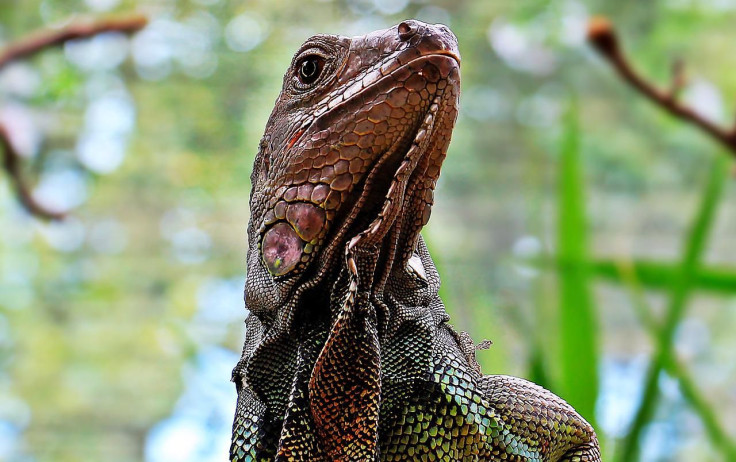Iguanas Getting 'Sugar High' From Tourists Feeding Them: Study
KEY POINTS
- 'Unnatural diets are becoming widespread among wildlife': Researchers
- Experts looked at the blood glucose levels of iguanas in the lab and in the wild
- Consuming high amounts of glucose altered iguanas' glucose metabolism
How does ecotourism affect the animals that the tourists encounter? For Northern Bahamian rock iguanas, their encounters with tourists who are feeding them seem to have led them to have a "sugar high."
It's not uncommon for people who go on ecotours to feed the animals they encounter. Northern Bahamian rock iguanas, for instance, are quite familiar with humans that give them food such as grapes, noted a news release from The Company of Biologists.
However, there has been evidence of how this has been impacting animals. In 2018, for instance, researchers found that juvenile green sea turtles in the Canary Islands have actually developed high fat and cholesterol levels from having been fed by tourists, Susannah French of Utah State University, one of the authors of the new study in the Journal of Experimental Biology, noted in the news release.
"(A)s a result of landscape change and human exposure, unnatural diets are becoming widespread among wildlife without the necessary time for evolutionary matching between the diet and its processing," the researchers wrote.
The researchers aimed to find out how an "unnatural high glucose diet" would affect the glucose tolerance of both captive green iguanas as well as wild Northern Bahamian rock iguanas. They chose green iguanas in the lab because rock iguanas are actually critically endangered, noted French.
To do this, they supplemented the captive iguanas' green diets with either a high- or low-glucose drink, with the low-glucose drink having glucose that's similar to the glucose in consumed grapes, noted the news release. After 17 days, they gave the iguanas an intermediate strength glucose drink and found that those who had been having the high-glucose diet actually had more difficulties in regulating their blood sugar levels.
They also performed similar tests on 48 wild Northern Bahamian rock iguanas: half of the iguanas were from islands that tourists frequent and the other half were from islands that are too hard to reach. They also gave the iguanas a glucose drink and monitored their blood sugar levels for almost a day.
Interestingly, the iguanas that were frequently fed by tourists had a high glucose peak and slow returns to baseline glucose levels. On the other hand, the blood sugar levels of the ones that rarely encountered tourists were much lower and even returned to normal faster.
"Therefore, unnatural consumption of high amounts of glucose alters glucose metabolism in laboratory iguanas with short-term glucose treatment and free-living iguanas exposed to long-term feeding by tourists," the researchers wrote.
The results show that feeding the wild iguanas does, in fact, affect their bodies, but the researchers noted that the exact health implications are still unclear. In humans, for instance, such a case would lead to a discussion of diabetes, said French.
"Based on these results and the increasing prevalence of anthropogenically altered wildlife diets, the consequences of dietary changes on glucose metabolism should be further investigated across species, as such changes in glucose metabolism have health consequences in humans (e.g. diabetes)," the researchers wrote.
"The opportunity to develop extraordinary connections with wildlife through tourism can lead to compassion and conservation, but we need to work towards a future where animals and the livelihoods of people who rely on them are safeguarded," Charles Knapp, Northern Bahamian rock iguana expert and one of the study authors, said in the news release.

© Copyright IBTimes 2024. All rights reserved.






















